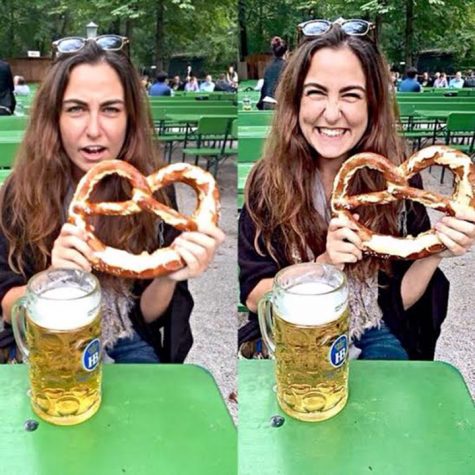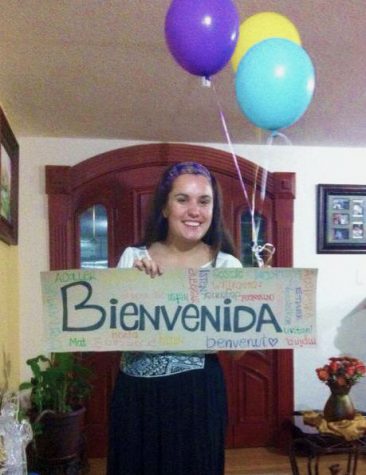ANGERS: Liberté, égalité, fraternité, and gay marriage
France is a couple steps ahead of the United States in terms of formal protections for same-sex couples. For years they have had pacte civil de solidarite (PACS), which are essentially the equivalent of civil unions in the United States. Moreover, as of February 12, a bill is underway to establish equal adoption rights and officially allow same-sex couples to call their relationship a marriage.
From what I can tell, the bill’s passage is on large part the efforts of the French Socialist party, who would have France be seen as progressive in passing same-sex marriage the same time as other European countries look to do so. Led by President François Hollande and with majorities in both houses of Parliament, the Socialist party is expecting to defeat all opposition to the bill by early May.
I also find myself looking to cast France as progressive and as a liberal leader on the equality issue, yet I have come to realize that to do so would be ignoring a large part of the population. In January, hundreds of thousands of people gathered at rallies in Paris both to show support and protest the bill. While supporters invoked the French motto “Liberté, égalité, fraternité,” protestors appealed to the Catholic tradition of France, which upholds heterosexual marriages and families. Opponents also have spoken out against the government’s role in propelling the legislation.
What follows is how I have personally been exposed to anti-gay sentiments in France. Again, I look not to characterize the country in any way. As with every post in this blog, I am trying to portray my experience as an American in new surroundings.
When I visited Paris a few weeks after the protests I was taken aback by the anti-gay posters depicting the union of a man and a woman as the only way to marry still up on street poles. Though I know those sentiments exist in the United States, I have always lived in largely liberal cities (Portland, Oregon and Austin, Texas) where homosexuality is an accepted part of life. I have never seen such blatantly anti-gay messages displayed in such a public way.
Then, on Thursday February 14th, the Subway sandwich shop beneath my dorm (literally directly below my room), posted a note for a heterosexual couples-only Valentine’s Day special. Below the sign was an asterisked notation that read:
“Discrimination: The marriage for all law has advanced, but has yet to be ratified by the Senate. Until then, I’ll use my freedom of expression.“
Most likely because I had never seen such discrimination on display, but the seriousness of the sign did not really sink in until two of my friends (both heterosexual girls) were denied the deal after pretending to be a couple. The next day, the Subway was shut down and the news of its special was in international news.
Real-world prejudice has never seemed so close as when I have walked past the closed Subway this last week.
Then, there was the discussion with two people I counted as some of the nicest Frenchmen I have met while living here. In my time here, they have been of immense help, always offering to tutor me in French or explain things in English. I always see them talking to different people and they seem to be of those people that everyone thinks they are friends with immediately because of how generally friendly and easy-going they are.
I am honestly still too shocked by the conversation to remember how it started, but I reckon it began with talking about when Subway was going to reopen. Regardless, swiftly it became clear that my two friends are more than homophobes. They are utterly anti-gay and hold both disgust and anger for those who might identify as such.
Reeling, I mentioned I was a bit surprised. I had never heard such a conservative outlook come from someone of my generation and I was still trying to cling to the idea that France was farther ahead than the United States in terms of gay rights and equality.
To which my friend responded that he is familiar with the French gay marriage bill and he hates it. Becoming somewhat animated, he boasted about how he attended one of the anti-gay rallies in Paris and cheered on those who were beating up gay couples on the scene.
My other friend echoed his disdain and explained that where he was born, Mauritania, homosexuals are thrown in jail. He seemed to think the practice solved a lot of problems.
I became immediately sickened as the image of my happy-go-lucky friends shattered and I found myself unable to escape imagining what might happen if they came across any of my gay friends in a dark alley. Suddenly, all was up in the air: what have they done and what would they think about me after hearing my views?
I did conquer some of my speechlessness to describe my experience with homosexuality: I grew up in a city where the gay pride parade was one of the biggest things that happened all year. I grew up always having gay family friends and have even attended a gay wedding celebration. From all that I know and have experienced, homosexuals are no different. They have never done anything to possibly deserve any of the hate my two friends have just expressed.
Yet my friends fire back saying that homosexuality is indeed “unnatural” and gay people are “diseased.” By the conviction with which they spoke and the way they then casually joked about how they would beat up a gay person in the streets, it became clear that their opinions were not going to change by our conversation, no matter what I say. I suspect that they lack real experience and interaction with homosexuals and have not put their violent words into action. Time did not allow me the chance to further question the origin or the extent of their views, nor am I wholly confident I would have had the guts to do so.
The last few days I have been sad, infuriated, and terribly confused. I have a strong belief in the equality of all human beings, be it race, gender or sexual orientation. I believe in the equal treatment of all. The fact that two people I have been calling friends do not respect the dignity of every human being as I do and hold such a hate has left me feeling lost.
The situation I am in demands that we see each other often. I cannot avoid them. Yet I cannot say that I will ever consider them friends in the same way. There is a part of me that will always feel incredibly uneasy around them, knowing how they feel and how helpless I am to change that. Yet after writing this post and some soul-searching with family, I have decided upon a few things.
These two friends of mine are still good people. I feel myself shuddering writing this as I consider all I have ever stood for and believed. Yet I do believe that they are. I believe their hate to be driven by naiveté and their ability to understand and empathize debilitated by their lack of experience and upbringing. This is ultimately, not unforgivable. At the same time, I wish with my all of my heart for them to start upon that path towards more understanding. I will do all that I can to help.




